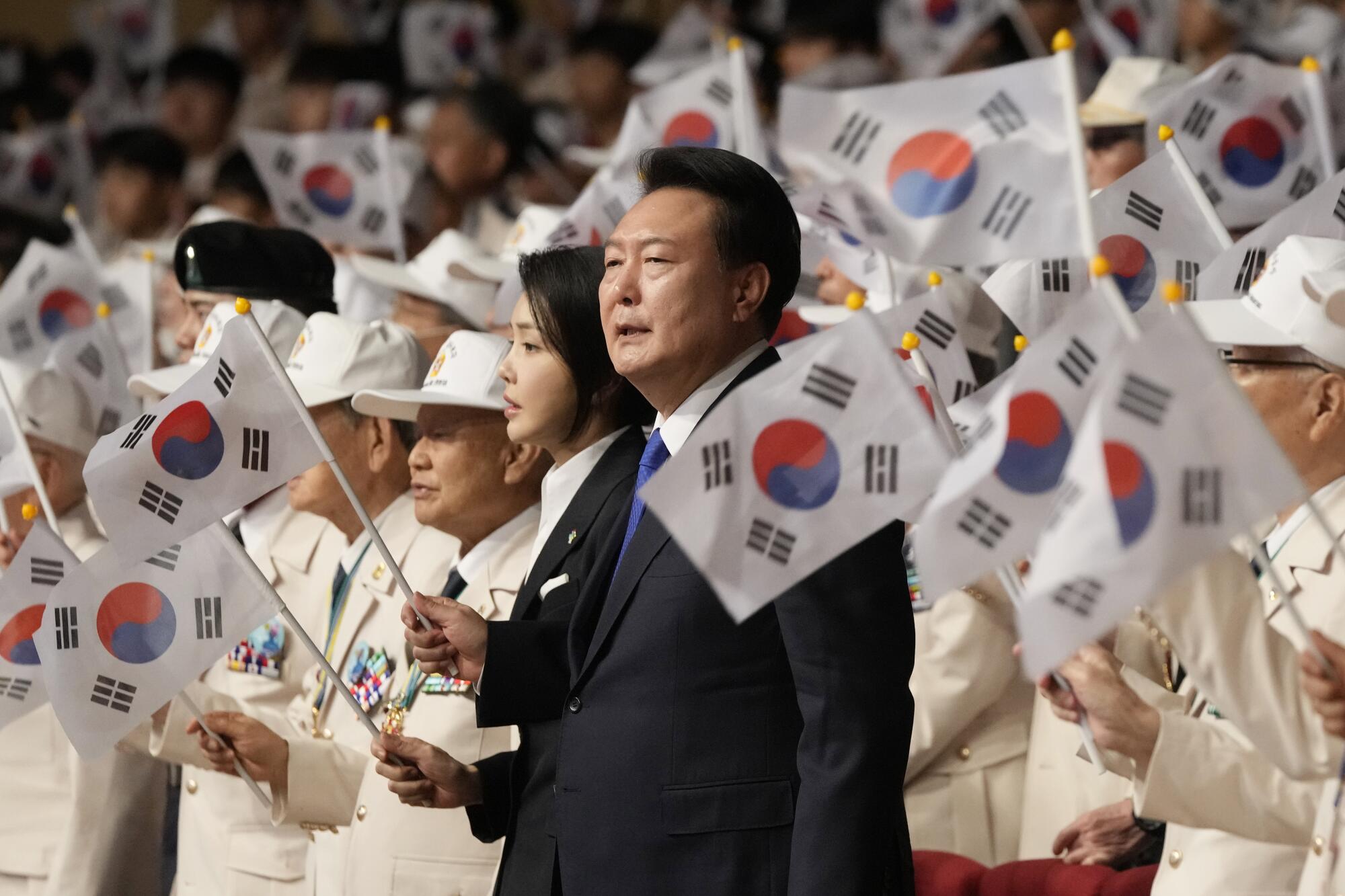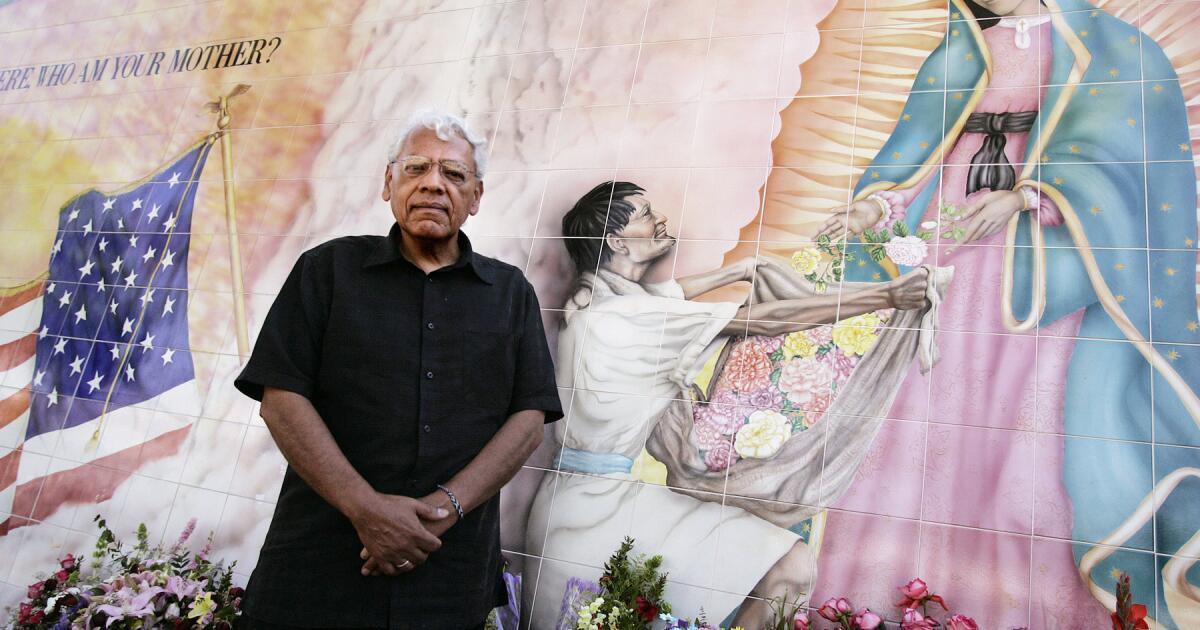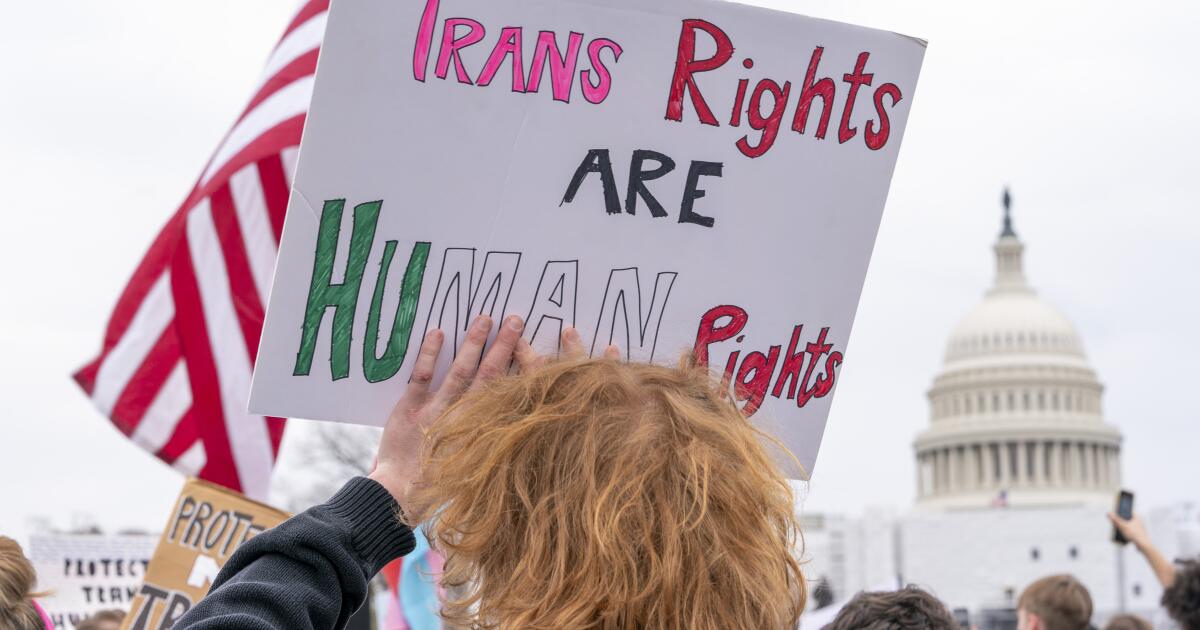SEOUL — South Korean lawmakers voted Saturday to impeach President Yoon Suk Yeol, whose short-lived declaration of martial law this month upended the democratic order and sparked a crescendoing campaign for his ouster.
His presidential powers will formally be suspended once he is served with a copy of the impeachment resolution. Prime Minister Han Duck-soo will take over as acting president while the country’s Constitutional Court takes up the matter. It has 180 days to rule on the impeachment motion, which if confirmed will trigger a snap election to choose a new president.
A dozen members of Yoon’s conservative People Power Party joined opposition lawmakers to pass the threshold of 200 votes — two-thirds of the legislature — required for his impeachment. The final vote was 204 to 85.

President Yoon Suk Yeol, foreground, with wife Kim Keon-hee at an official event in Daegu, South Korea, in June. The Constitutional Court now has 180 days to rule on his impeachment.
(Ahn Young-joon / Associated Press)
Outside the National Assembly, loud cheers washed over a large crowd of pro-impeachment protesters, some of whom had set up free coffee and food stalls for fellow participants.
“This is a triumph of democracy and of the South Korean people,” Park Chan-dae, the opposition party floor leader, said after the vote.
Until now, many of Yoon’s party members had resisted backing the opposition-led push to impeach him, saying they would seek an “orderly resignation” instead.
But recent developments made that position untenable.
Numerous testimonies emerged contradicting Yoon’s claim that his declaration of martial law on Dec. 3 was meant only as a show of force to the opposition-controlled National Assembly — which he described as filled with “anti-state” saboteurs and North Korea sympathizers.
A document leaked to opposition lawmaker Choo Mi-ae from the military’s counterintelligence unit showed that preparations for the declaration had been made at least a month in advance — and that the military had reviewed available medical facilities in seeming anticipation of bloodshed.
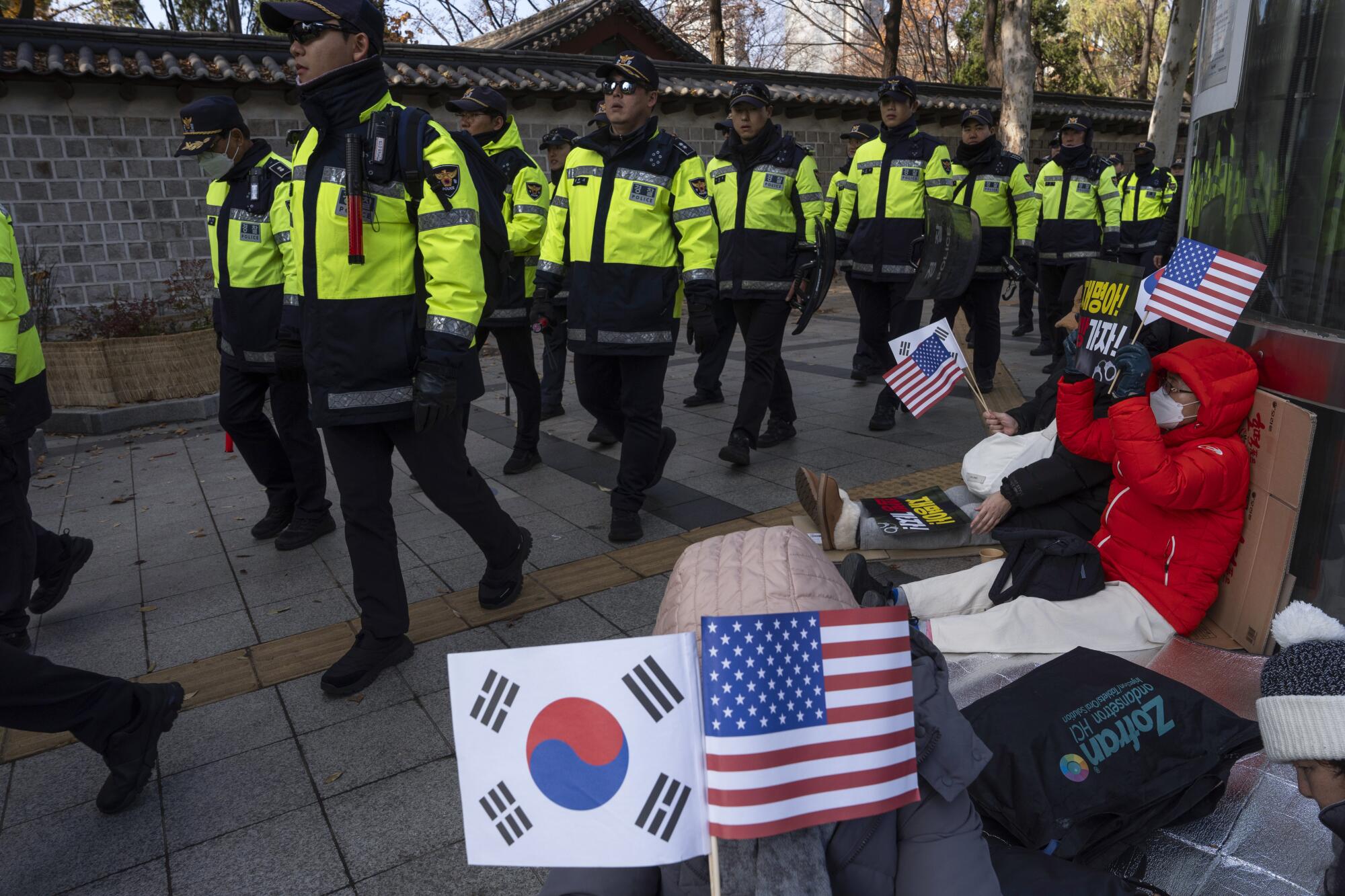
Police officers file past Yoon supporters in Seoul on Thursday.
(Ng Han Guan / Associated Press)
A senior officer in the unit has also told lawmakers that he was given a list of key politicians to arrest.
Lt. Gen. Kwak Jong-keun, the commander of the special forces unit that stormed the National Assembly, testified this week that Yoon personally ordered him to prevent the gathering of 150 lawmakers — the threshold needed to overturn a martial law declaration.
“Hurry up and break down the door and drag out anyone inside,” Kwak recalled Yoon telling him on the phone.
Even during martial law, preventing the National Assembly from carrying out its duties is a violation of the constitution, which gives lawmakers the authority to overturn a martial law order with a majority vote, as they did in the early hours of Dec. 4.
The question of intent will have significant implications for an insurrection investigation currently underway.
Defined as a deliberate attempt to subvert the constitution, insurrection is one of the few crimes not covered by presidential immunity. If convicted, Yoon could face the death penalty or life in prison.
In a televised public address Thursday, Yoon vowed to “fight to the end.”

Demonstrators hold a banner depicting a caricature of Yoon’s face on a train during a rally in the capital demanding his impeachment on Friday.
(Ahn Young-joon / Associated Press)
He suggested that the opposition party’s massive wins in the April parliamentary elections were the result of voting fraud — a claim that has been debunked — and said declaring martial law was a legitimate exercise of his presidential rights.
Han Dong-hoon, the leader of Yoon’s party, said to the party’s lawmakers: “He is trying to rationalize rather than repent for the current situation, effectively confessing to insurrection.
“We need to back impeachment as official party policy.”
If the impeachment is confirmed by the Constitutional Court, Yoon will become the fourth South Korean president — out of eight total — to be jailed or ousted since the nation democratized in 1987 after decades of authoritarian rule.
Roh Tae-woo, South Korea’s first democratic president, was sentenced to 17 years in prison for his role in the 1979 coup that brought military dictator Chun Doo-hwan to power and led to a civilian massacre.
The only other president to be successfully impeached was Park Geun-hye, a conservative who left office in 2017 and was sentenced to 22 years in prison for a corruption scandal involving major corporations and the daughter of a cult leader.
Both leaders were pardoned by their successors.
Yoon is now facing an abrupt end to a short and tumultuous political career. A former prosecutor with no electoral experience, he was catapulted to the presidency two years ago for his high-profile role in investigating and jailing two other corrupt conservative presidents — Park and her predecessor, Lee Myung-bak, a former construction executive found guilty of accepting about $10 million in bribes as president.
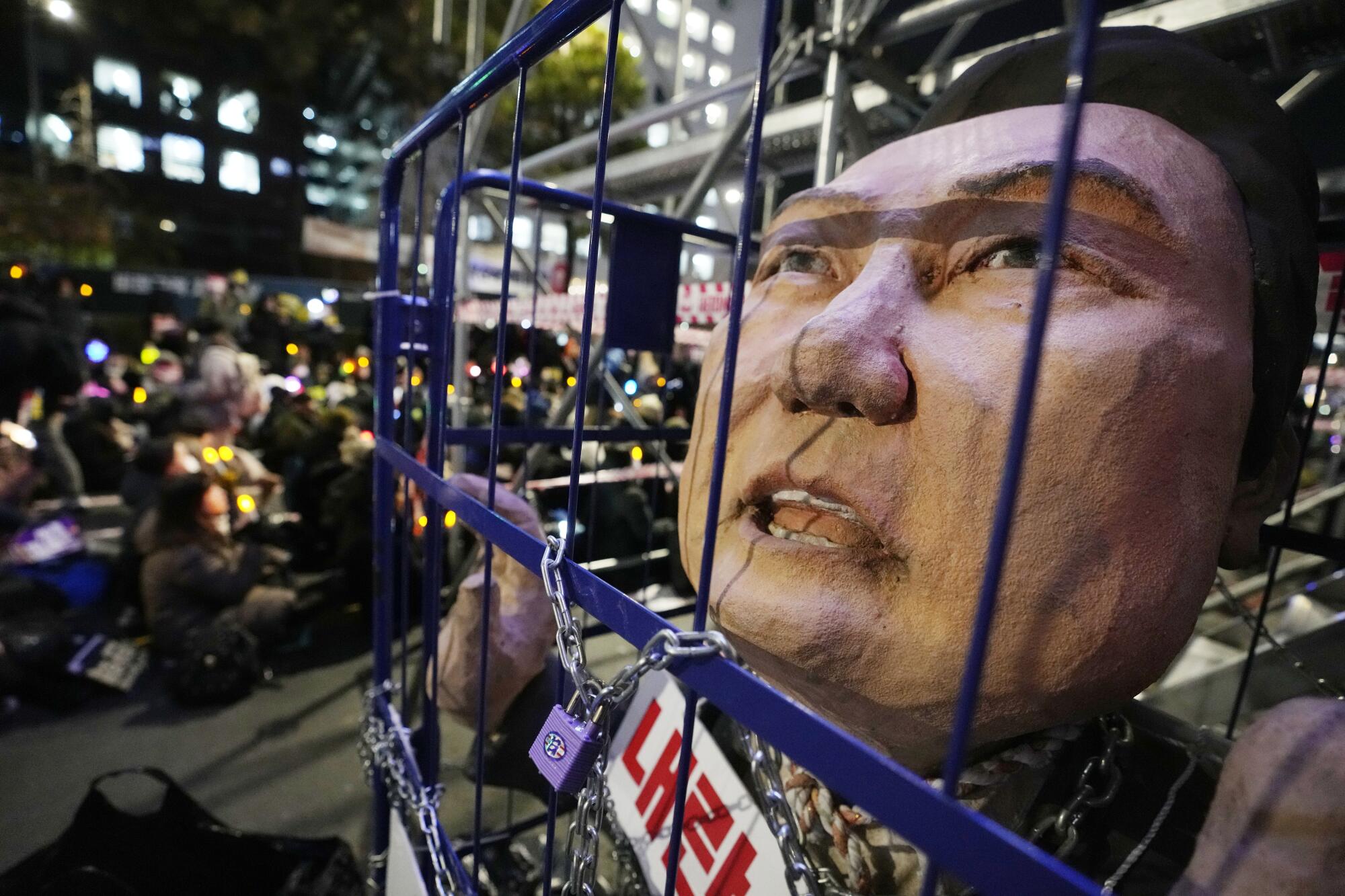
An anti-Yoon prop is displayed at Friday’s rally.
(Ahn Young-joon / Associated Press)
But Yoon’s time in office was marred by criticisms of authoritarian governance, such as cracking down on the news media, in addition to graft and financial crime allegations against his wife.
Still, he had presented himself as a bulwark of democracy on the international stage, hosting President Biden’s Summit for Democracy in March.
In his speech at that event, Yoon had warned against the dangers facing democratic systems.
